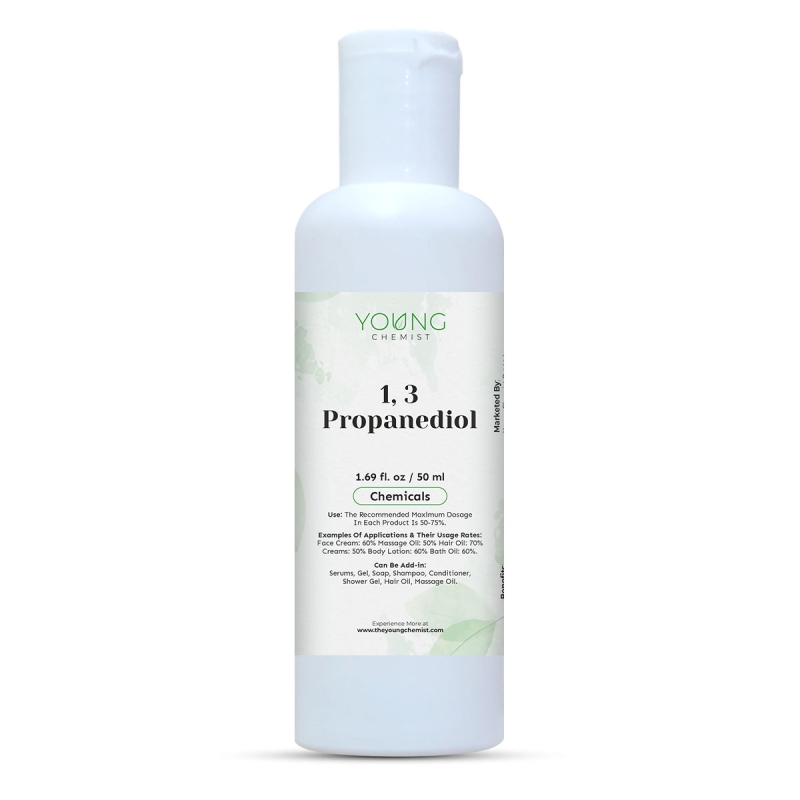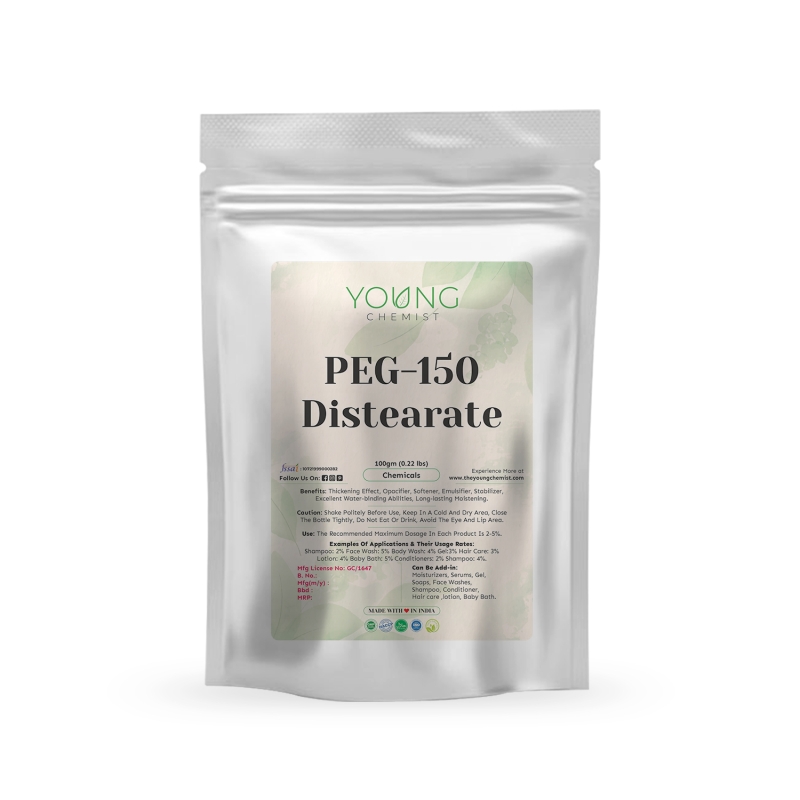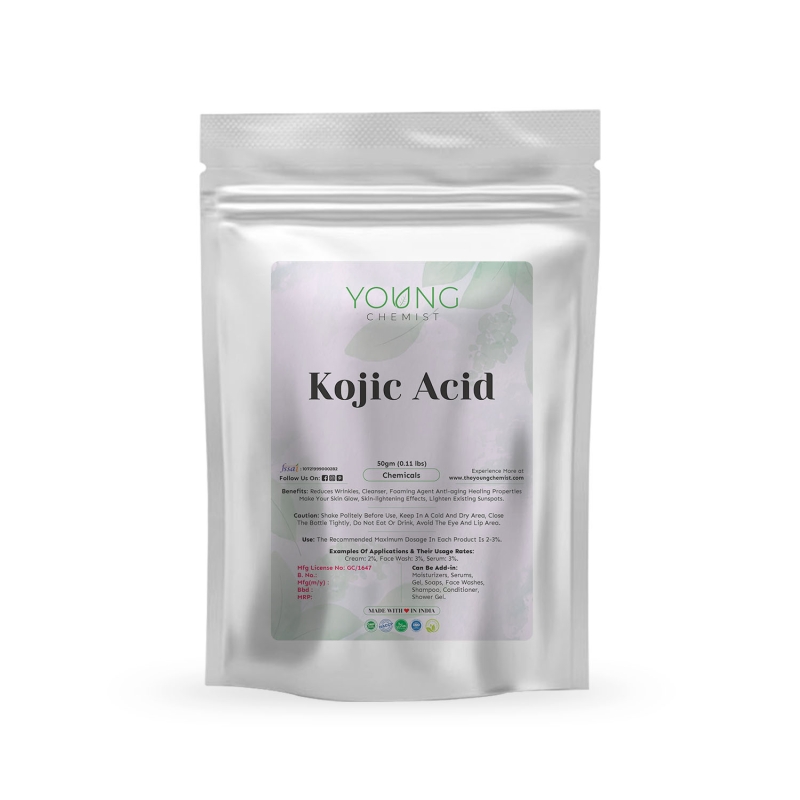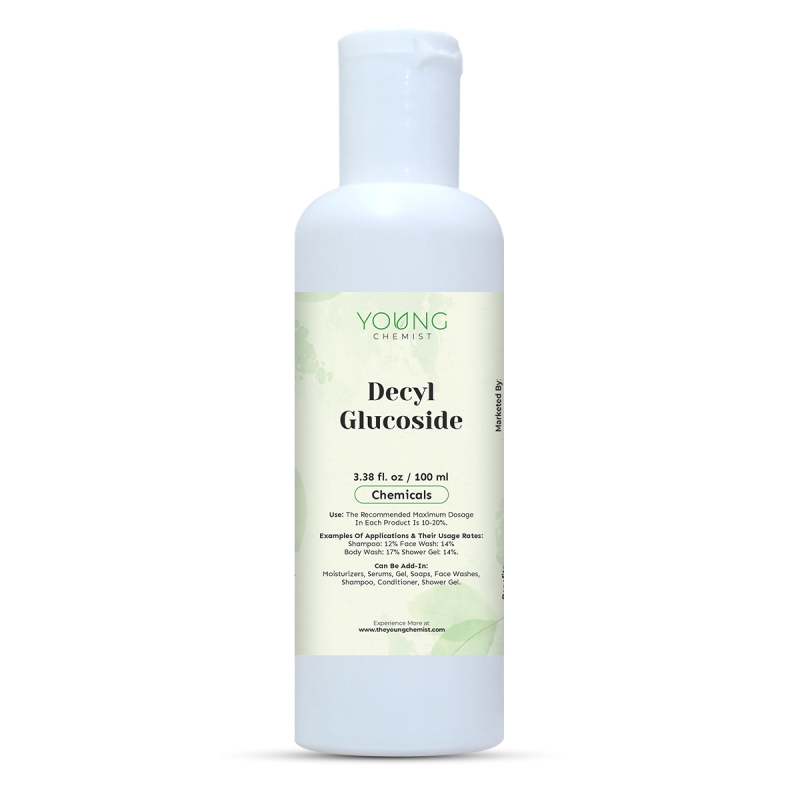-
No Item Added in Cart.
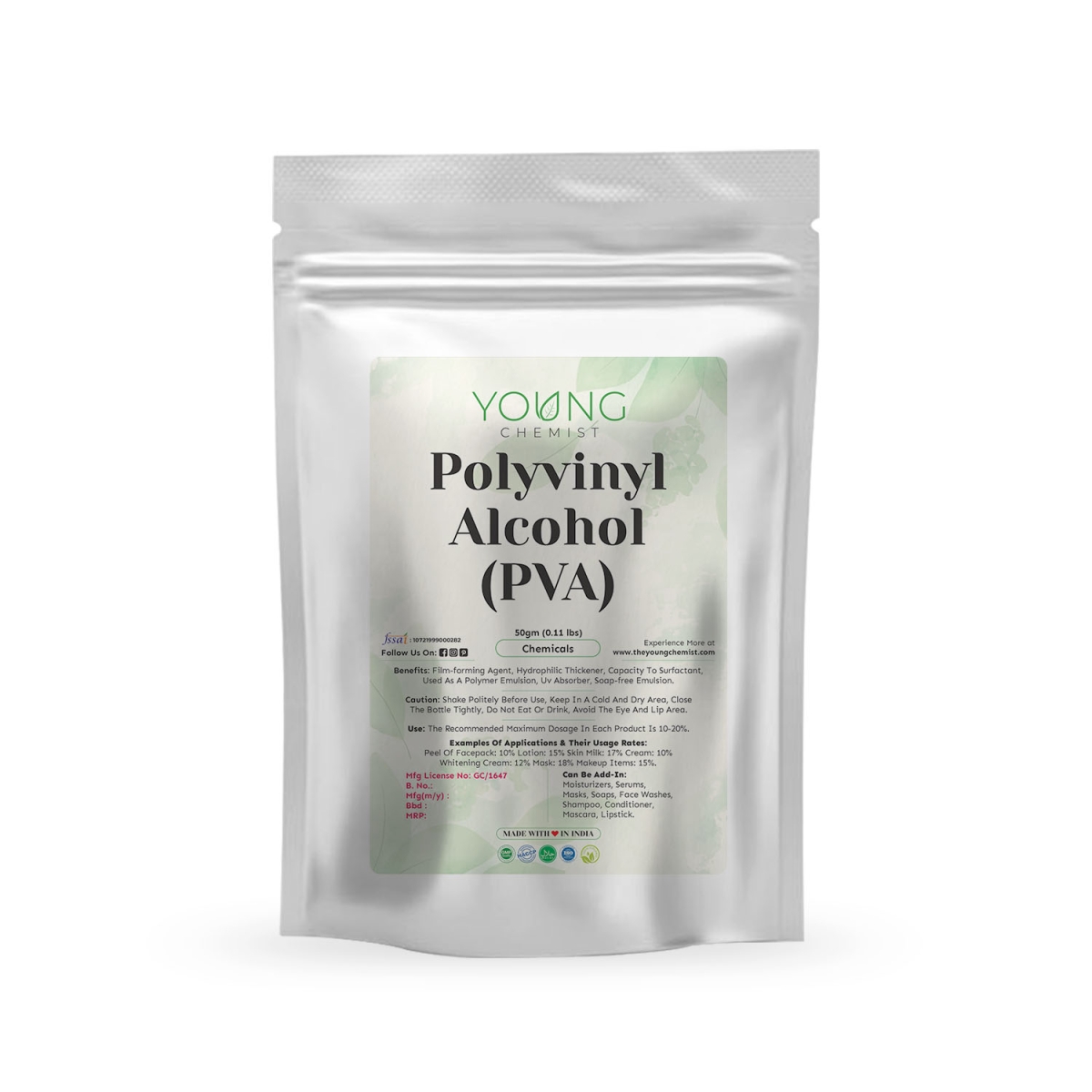
Polyvinyl Alcohol (PVA)
SKU: CC-TEMU-PVA
Size

40 customers are viewing this product



Young Chemist Polyvinyl Alcohol (PVA) is a popular cosmetic chemical widely used in various skincare and beauty products. It is a synthetic polymer derived from vinyl acetate through a process called hydrolysis. PVA offers several benefits for the skin and hair due to its unique properties.
PVA can be found in various cosmetic products, including moisturizers, serums, masks, and hair care items. Follow the instructions provided on the specific product for proper usage. Generally, apply the product containing PVA to clean, dry skin or hair, and gently massage or spread it until absorbed. Use it as directed, and avoid contact with the eyes.
- Moisturizing: PVA has excellent water-retaining properties, making it an effective moisturizer. It forms a thin film on the skin, reducing moisture loss and helping to keep the skin hydrated.
- Film-forming: When applied to the skin or hair, PVA forms a flexible film that can provide a protective barrier. This film helps to prevent dehydration and shields the skin and hair from environmental aggressors.
- Binding Agent: PVA acts as a binder, holding together the ingredients in cosmetic formulations. It helps to stabilize emulsions, creams, and gels, enhancing their texture and consistency.
- Gentle and Non-Irritating: PVA is considered safe and gentle for most skin types. It has low allergenic potential and is well-tolerated by sensitive skin, making it suitable for a wide range of cosmetic products.
- Allergies: Although PVA is generally safe for most individuals, it is advisable to perform a patch test before using any cosmetic product containing PVA, especially if you have sensitive skin or known allergies.
- Eye Contact: Avoid getting PVA-based products into the eyes, as it may cause irritation. In case of accidental contact, rinse thoroughly with water and seek medical attention if needed.
- Discontinue Use: If you experience any adverse reactions, such as redness, itching, or irritation, discontinue use of the product containing PVA and consult a healthcare professional if necessary.
- Storage: Store PVA-based products in a cool, dry place, away from direct sunlight and excessive heat. Follow any specific storage instructions provided by the manufacturer.
Always refer to the product packaging and consult a dermatologist or healthcare professional if you have any concerns or specific questions about using products containing PVA.
Product Questions
Polyvinyl Alcohol (PVA) is a synthetic polymer that's used in a variety of products, including adhesives, coatings, and even in some medical applications. It's known for its water-solubility and film-forming properties.
PVA is quite versatile! It’s commonly used in adhesives (like glue), as a coating for paper and textiles, in films and packaging, and in some medical and cosmetic products. It helps things stick together and form smooth, protective layers.
Yes, PVA is generally considered safe for use in cosmetics and skincare products. It’s often used to create a smooth texture and as a film-forming agent. However, if you have sensitive skin, it’s always a good idea to check the ingredient list and consult with a dermatologist.
PVA enhances the bonding strength of adhesives. It helps them dry clear and form a strong, flexible bond on various surfaces. This makes it perfect for everything from craft projects to industrial applications.
PVA can be used in environmentally friendly products because it is biodegradable. However, the environmental impact depends on how it's disposed of and the specific formulation of the product it’s used in.
Yes, PVA is soluble in water. This property makes it useful for products that need to dissolve or be removed with water, such as certain types of laundry detergent or packaging materials.
When using PVA products, it's generally safe, but make sure to use them in well-ventilated areas and avoid direct contact with your eyes. Always follow the manufacturer's instructions for safe use.
PVA stands out because of its water-solubility and ability to form a clear, flexible film. Unlike some other polymers, it dissolves in water, which makes it unique for applications where easy removal or solubility is desired.
Yes, PVA is used in some food packaging applications. Its ability to form a protective film can help keep food fresh. However, it's important to ensure that the PVA used in food packaging meets safety regulations.
PVA products you can find Online Platforms ( https://www.theyoungchemist.com/ ).


